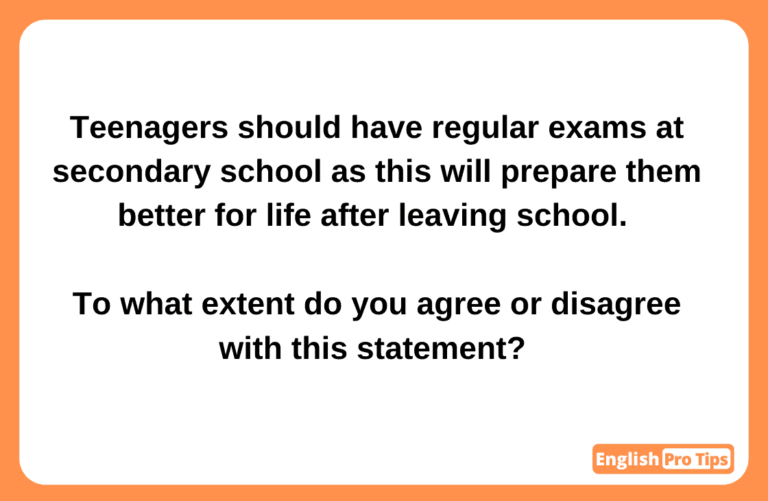These days, many people support the arrangement of regular exams at high schools because they think that this would be conducive to the post-school lifes of teenagers. Personally, I agree with this idea despite the drawbacks of these exams.
It is indisputable that preparing for frequent exams is stressful and exhausting. Studious students, who want to get better score, may learn by rote as they have to memorise a lot of information in a relatively short time; this means of learning is detrimental to their critical thinking skills. For this reason, an exam-oriented education may raise students with good examination skills, however, they may not be able to get acquainted of what they have learnt.
On the other hand, there are several positive aspects of having exams: prepares students for their challenges in the future and equips them with essential soft skills. Firstly, no matter students would like to pursue further education or go to vocational colleges after graduating from high schools, exams or on-going assessments are inevitable. By preparing them with plenty of exams, students understand techniques in doing such tasks and learn more effectively. In addition, by spending time to revise different subjects, teenagers learn valuable skills in time management, which is vital when it comes to their adult life. Moreover, after taking regular exams, they become more sustainable to face challenges. This stress coping skills turn them into persistent and resilient adults.
In conclusion, I totally agree students should take exams regularly at high school as it equips students for both their tertiary education and career, and trains them with essential soft skills. Schools ought to arrange exams in a much sensible way so that students’ critical thinking skills would not be sacrificed.

Wai Fong
Community Band Score








 (3 votes, average: 7.33 out of 9)
(3 votes, average: 7.33 out of 9)You need to be a registered member to rate this.
Very good
- Wow, I wish I could write like this. Can you give me some tips?
- This is a really good answer, I can’t see any mistakes.
- Great vocabulary, I didn’t know the word _____ and ______.
- Very clever ideas. They clearly relate to the question.
Good
- Your grammar is very good. However, I think you made a mistake in the sentence _______. I think it should be _______.
- Your introduction/overview is really good. However, I think ______ is a mistake. It should be _________.
- In general, your spelling is good but you misspelled the word ______.


Comments
Great essay Fion. ????
+ Brief introduction with a clear position
+ Some great collocations (stressful and exhausting, detrimental to their critical thinking skills, exam-oriented education, essential soft skills, valuable skills in time management, vital when it comes to their adult life, persistent and resilient adults)
– Some of your vocabulary is not quite right. For example, “get acquainted of what they have learnt.” – maybe “fully get to grips with the knowledge they have been taught” might be more suitable.
– “prepares students for their challenges in the future and equips them with essential soft skills” – when a verb is acting as a noun (the subject of a sentence), we use a gerund. So the sentences should be “preparing students for their future challenges and equipping them with essential soft skills”
– Remember to use an ing verb after “spend time”. For example, “spending time revising”
– Don’t mention a new idea in the conclusion. In the conclusion, you say “Schools ought to arrange exams in a much sensible way so that students’ critical thinking skills would not be sacrificed.” – however, the idea that shools should oganise exams in a sensible way is not an idea that appears in your body paragraphs. Maybe a more suitable conclusion would be “I acknowledge that exam-oriented education can be detrimental to the development of critical thinking skills and deep learning. However, I would argue that …”